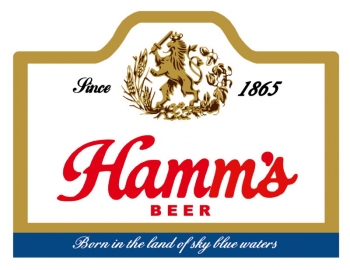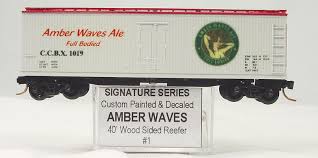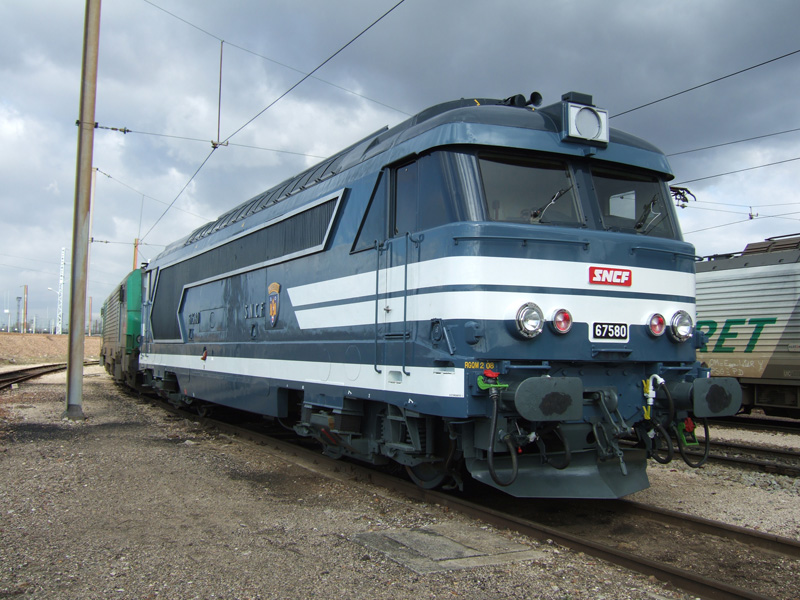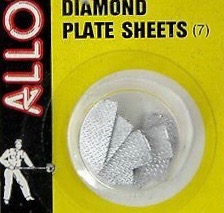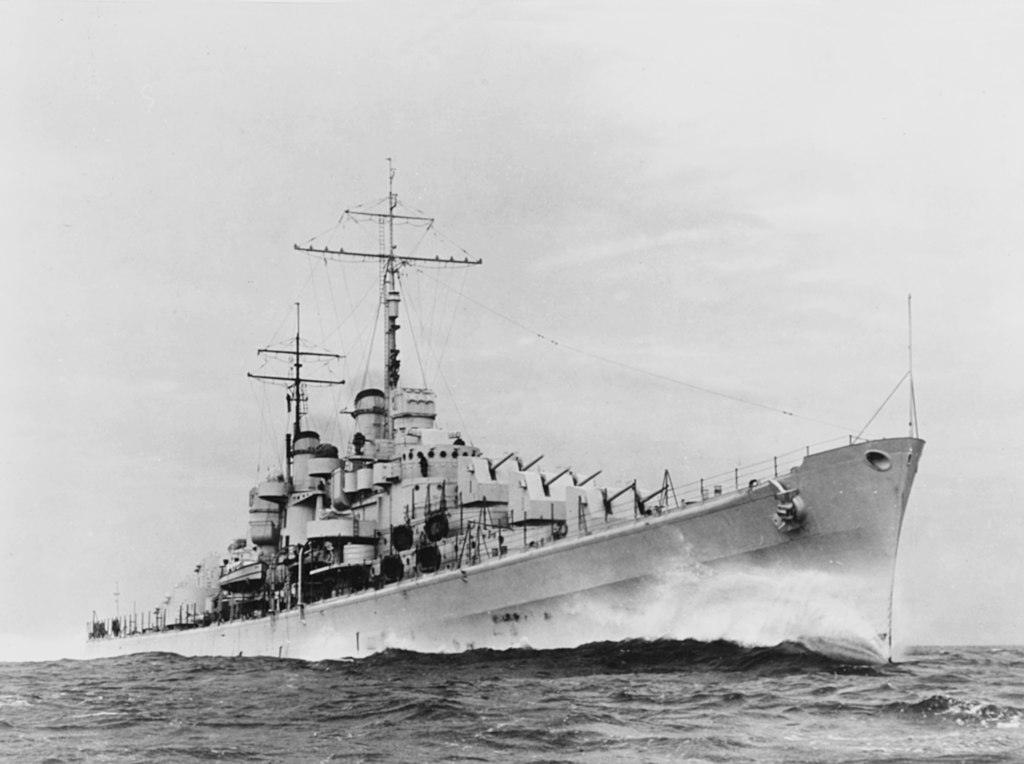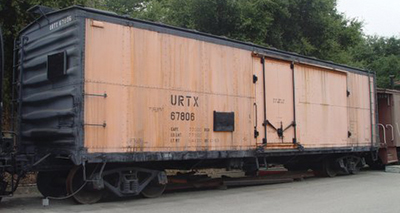Model Information: Mehano first started producing this model in the early 1970's for MRC. It is clearly a knock-off of the Roco 40 foot steel reefer of the same time period. Even the under-frames are close to identical! The only simple way to tell the difference between the Roco and Mehano versions are whether they say "Yugoslavia" or "Austria" on the underframe. I am unsure whether the tooling was licensed by Mehano or 'stolen'. The Mehano version was also imported by AHM and Model Power. Later, the tooling became lost or damaged (due to the civil war in Yugoslavia) and Mehano redid the model to carry a more conventional plug door. The new version was imported only by Life-Like.
Prototype History: A refrigerator car (or “reefer”) is a refrigerated boxcar (US) or van (UIC), a piece of railroad rolling stock designed to carry perishable freight at specific temperatures. Refrigerator cars differ from simple insulated boxcars and ventilated boxcars (commonly used for transporting fruit), neither of which are fitted with cooling apparatus. Reefers can be ice-cooled, come equipped with any one of a variety of mechanical refrigeration systems, or utilize carbon dioxide (either as dry ice, or in liquid form) as a cooling agent. Milk cars (and other types of “express” reefers) may or may not include a cooling system, but are equipped with high-speed trucks and other modifications that allow them to travel with passenger trains.
By the 1940's, new reefers were being built entirely of steel. Insulating techniques improved to the point where economical refrigeration could be accomplished using steel side plates in place of wood sheathing. Cars with steel roofs and sides were more durable and required fewer repairs.
The General American Transportation Corporation built several 40' steel reefer for the Union Refrigerator Transit Line (URTX) from the late 1940's into the 1950's.
This reefer was 40' long & weighted 61,500 lbs. The car is a steel bodied reefer with iced bunkers at each end. These ice bunkers hold 10,400 lbs. of chunk ice or 11,500 lbs. of crushed ice. Ice stations were located every 100-150 miles along the railroads main line to replace the melted ice. In the winter, charcoal heaters could be placed in the bunkers to keep the cargo from freezing. Fans are located in the floor at each end to circulate air and keep an even temperature throughout the car. Typical cargo would be fresh fruit, vegetables or eggs.
American Car & Foundry (ACF Industries) also built 40' reefer for several companies.
By the 1940's, new reefers were being built entirely of steel. Insulating techniques improved to the point where economical refrigeration could be accomplished using steel side plates in place of wood sheathing. Cars with steel roofs and sides were more durable and required fewer repairs.
The General American Transportation Corporation built several 40' steel reefer for the Union Refrigerator Transit Line (URTX) from the late 1940's into the 1950's.
This reefer was 40' long & weighted 61,500 lbs. The car is a steel bodied reefer with iced bunkers at each end. These ice bunkers hold 10,400 lbs. of chunk ice or 11,500 lbs. of crushed ice. Ice stations were located every 100-150 miles along the railroads main line to replace the melted ice. In the winter, charcoal heaters could be placed in the bunkers to keep the cargo from freezing. Fans are located in the floor at each end to circulate air and keep an even temperature throughout the car. Typical cargo would be fresh fruit, vegetables or eggs.
American Car & Foundry (ACF Industries) also built 40' reefer for several companies.
Road Name History: The Theodore Hamm Brewing Company was established in 1865 when , a German immigrant Theodore Hamm (1825-1903) inherited the Excelsior Brewery from his friend and business associate A. F. Keller, who had perished in California seeking his fortune in the gold fields. Unable to finance the venture himself, Keller had entered into a partnership with Hamm to secure funding. Upon Keller's death, Hamm inherited the small brewery and flour mill in the east side wilderness of St. Paul, Minnesota. Keller had constructed his brewery in 1860 over artesian wells in a section of the Phalen Creek valley in St. Paul known as Swede Hollow. Hamm, a butcher by trade and local salon owner, first hired Jacob Schmidt as a brew master. Jacob Schmidt remained with the company until the early 1880s, becoming a close family friend of the Hamms. Jacob Schmidt left the company after an argument ensued over Louise Hamm's disciplinary actions to Schmidt's daughter, Marie. By 1884, Schmidt was a partner at the North Star Brewery not far from Hamm's brewery. By 1899 he had established his own brewery on the site of the former Stalhmann Brewery site. In need of a new brewmaster, Hamm hired Christopher Figge who would start a tradition of three generations of Hamm's Brewmasters, with his son William and grandson William II taking the position. By the 1880s, the Theodore Hamm Brewing Company was reportedly the second largest in Minnesota.
During Prohibition, the company survived by producing soft drinks and other food products, enabling it to expand rapidly through acquisitions after the repeal of Prohibition in 1933. From 1933 until 1965 Hamm's saw much success; much of this can be attributed to William C. Figge Jr. taking over as President in 1951. Figge expanded the Hamm's brand into a national entity with breweries in St. Paul, Minnesota; Los Angeles, California; San Francisco, California; Baltimore, Maryland; and Houston, Texas. The latter two were short-lived and closed soon after they opened. As the company celebrated its 100th anniversary, the family decided to sell the brewery and leave the ever more competitive brewing industry to focus on its other ventures like its successful real estate company.
From Wikipedia
During Prohibition, the company survived by producing soft drinks and other food products, enabling it to expand rapidly through acquisitions after the repeal of Prohibition in 1933. From 1933 until 1965 Hamm's saw much success; much of this can be attributed to William C. Figge Jr. taking over as President in 1951. Figge expanded the Hamm's brand into a national entity with breweries in St. Paul, Minnesota; Los Angeles, California; San Francisco, California; Baltimore, Maryland; and Houston, Texas. The latter two were short-lived and closed soon after they opened. As the company celebrated its 100th anniversary, the family decided to sell the brewery and leave the ever more competitive brewing industry to focus on its other ventures like its successful real estate company.
From Wikipedia
Brand/Importer Information:  Life-Like Products LLC (now Life-Like Toy and Hobby division of Wm. K. Walthers) was a manufacturer of model railroad products and was based in Baltimore, Maryland.
Life-Like Products LLC (now Life-Like Toy and Hobby division of Wm. K. Walthers) was a manufacturer of model railroad products and was based in Baltimore, Maryland.
It was founded in the 1950s by a company that pioneered extruded foam ice chests under the Lifoam trademark. Because ice chests are a summer seasonal item, the company needed a way to keep the factory operating year round. As model railroading was becoming popular in the post-war years, they saw this as an opportunity and so manufactured extruded foam tunnels for model trains. Over the years, Life-Like expanded into other scenery items, finally manufacturing rolling stock beginning in the late 1960s. At some point in the early 1970s, Life-Like purchased Varney Inc. and began to produce the former Varney line as its own.
The Canadian distributor for Life-Like products, Canadian Hobbycraft, saw a missing segment in market for Canadian model prototypes, and started producing a few Canadian models that were later, with a few modifications, offered in the US market with US roadnames.
In 2005, the company, now known as Lifoam Industries, LLC, decided to concentrate on their core products of extruded foam and sold their model railroad operations to Wm. K. Walthers.
In June 2018, Atlas and Walthers announced to have reached an agreement under which all Walthers N scale rolling stock tooling, including the former Life-Like tooling, will be purchased by Atlas.
Read more on Wikipedia and The Train Collectors Association.

It was founded in the 1950s by a company that pioneered extruded foam ice chests under the Lifoam trademark. Because ice chests are a summer seasonal item, the company needed a way to keep the factory operating year round. As model railroading was becoming popular in the post-war years, they saw this as an opportunity and so manufactured extruded foam tunnels for model trains. Over the years, Life-Like expanded into other scenery items, finally manufacturing rolling stock beginning in the late 1960s. At some point in the early 1970s, Life-Like purchased Varney Inc. and began to produce the former Varney line as its own.
The Canadian distributor for Life-Like products, Canadian Hobbycraft, saw a missing segment in market for Canadian model prototypes, and started producing a few Canadian models that were later, with a few modifications, offered in the US market with US roadnames.
In 2005, the company, now known as Lifoam Industries, LLC, decided to concentrate on their core products of extruded foam and sold their model railroad operations to Wm. K. Walthers.
In June 2018, Atlas and Walthers announced to have reached an agreement under which all Walthers N scale rolling stock tooling, including the former Life-Like tooling, will be purchased by Atlas.
Read more on Wikipedia and The Train Collectors Association.
Manufacturer Information: Mehano is a Slovenian toy manufacturer located in Izola, Slovenija. The company was founded as Mehanotehnika and was producing toys starting in June 1953. They first exhibited at the Nuerenberg Toy Fair in 1959. Mehano produced a number of different locomotives and rolling stock models for the North American market in the 1960s and 1970s. Companies such as Atlas and Life-Like imported a huge variety of their products. Generally they can easily be recognized as they are stamped "Yugosolavia" on the underframe. The company was formally renamed "Mehano" in 1990. Izola today is part of the country of Slovenia since the breakup of Yugoslavia.
Mehano filed for bankruptcy in 2008, but still continued to exist and operate. Since 2012, Mehano products are distributed by Lemke.
Mehano filed for bankruptcy in 2008, but still continued to exist and operate. Since 2012, Mehano products are distributed by Lemke.
Item created by: gdm on 2017-01-30 17:13:57. Last edited by gdm on 2021-02-07 16:53:31
If you see errors or missing data in this entry, please feel free to log in and edit it. Anyone with a Gmail account can log in instantly.
If you see errors or missing data in this entry, please feel free to log in and edit it. Anyone with a Gmail account can log in instantly.




